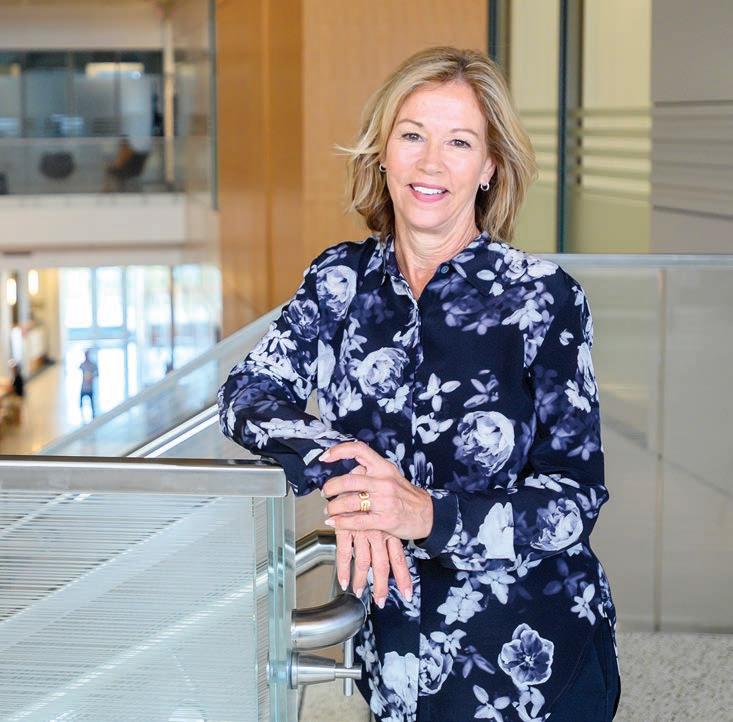Georgia State Law
The #GoodLaw advocate
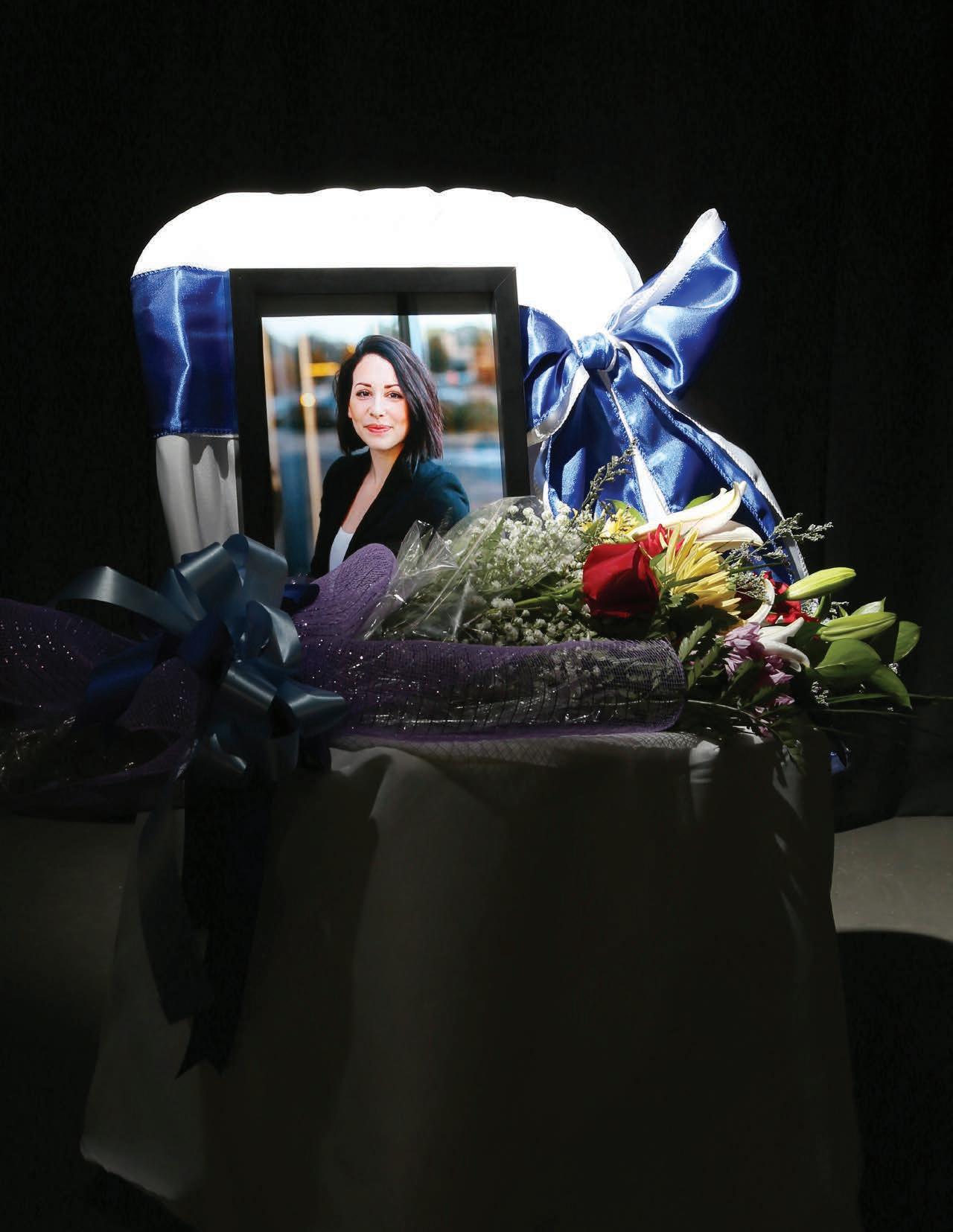

 Maxine Lawson (J.D. ’24) chats with her classmate Kierra Ross (J.D. ’24) before heading to class.
Maxine Lawson (J.D. ’24) chats with her classmate Kierra Ross (J.D. ’24) before heading to class.



 Maxine Lawson (J.D. ’24) chats with her classmate Kierra Ross (J.D. ’24) before heading to class.
Maxine Lawson (J.D. ’24) chats with her classmate Kierra Ross (J.D. ’24) before heading to class.
GEORGIA STATE LAW NEWS
6 Health Law champion influenced many
In loving memory of Charity Scott, the Center for Law, Health & Society’s founding director.
8 The #GoodLaw advocate
Alexandra “Alex” Patafio (J.D. ’23) left a remarkable impact.
10 Mentors make the difference
Sports and Entertainment Law Society connects students with mentors in the field.
12 Lombardo honored
For nearly 20 years he has shared his expertise in Pakistan.
14 Fellowship tackles urban equity
A new research center will focus on challenges in urban communities.
CURRENT EVENTS
16 Standing is as standing does by Jeffrey L. Vagle
STUDENT STORIES
18 Living on the front lines
Dan Wingate (J.D. ’23)
20 Health Law becomes personal
Morgan Cronin (J.D./M.S.H.A. ’23)
22 Immigration Clinic win
Katie Beno-Valencia (J.D. ’24)
Angela Flores (J.D. ’24)
ALUMNI PROFILE
28 Cultivating connections
Cot Eversole (J.D. ’15)
IN THEIR WORDS
30 First Latina state court judge
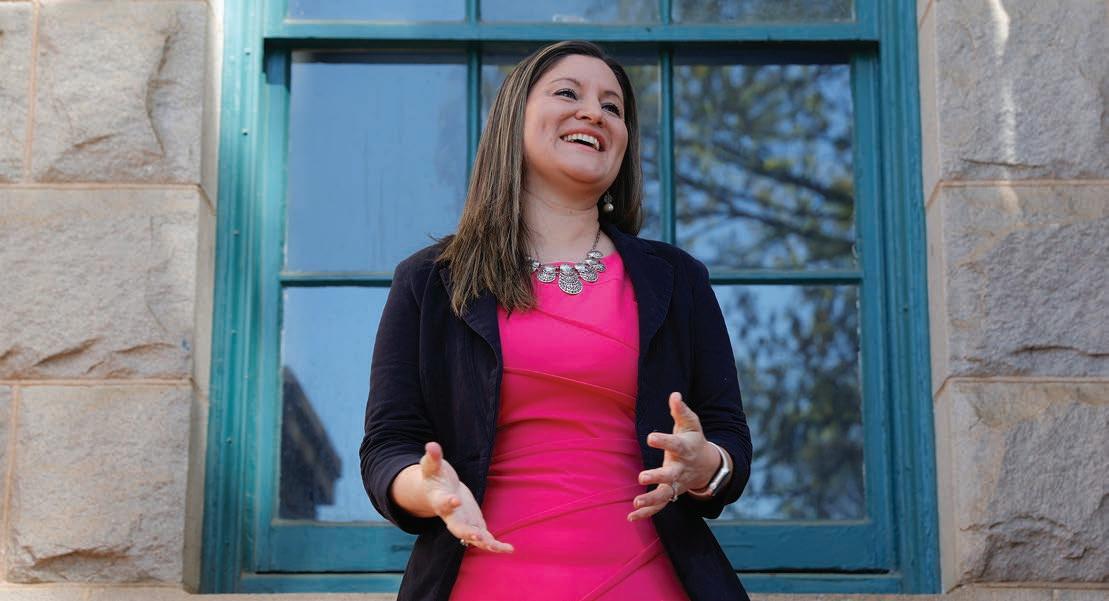
Ana Maria Martinez (J.D. ’09)
IN EVERY ISSUE
4 From the Dean
5 Briefs
24 Faculty news
29 Class actions
32 Last look
Dean
LaVonda N. Reed
Editor
Jaya Franklin
Director of Communications
Art director/designer
Winnie Hulme
Contributors
Lauren Allred
Maya Carpenter
Holly Cline
Stacey Evans (B.A. ’02)
Jaya Franklin
Stacie Kershner (J.D. ’08)
Caroline Silva
Jeffrey L. Vagle
Joy Woodson
Photographers
Jenni Girtman
Caroline Joe
Natrice Miller
Carolyn Richardson
Steve Thackston
On the cover
Photograph by Caroline Joe
Board of Visitors

Simon H. Bloom Bloom, Parham llp
Janine A. Bowen (J.D. ’98) BakerHostetler llp

Carrie L. Christie (J.D. ’89) Rutherford & Christie llp
Tye Darland
Georgia-Pacific llc
Richard H. Deane Jr. Jones Day
Scott Frank (J.D./MBA ’94) AT&T Intellectual Property
Ronald J. Freeman Sr. (J.D. ’85) Johnson & Freeman llc
William E. Grob (J.D. ’00)
Ogletree Deakins Nash Smoak & Stewart pc
Edward J. Hardin Rogers & Hardin llp
Phillip E. Holladay Jr.
King & Spalding llp (retired)
Randall L. Hughes
Bryan Cave llp (retired)
Dawn M. Jones (J.D. ’00)
The Firm of Dawn M. Jones llc
Joyce Gist Lewis (J.D. ’99) Krevolin & Horst llc
Aasia Mustakeem (J.D. ’87) Atlanta Beltline Inc.
Steven B. Najjar (J.D. ’92) Hanover Life Reassurance Company of America
Ernesto R. Perez (J.D. ’92) Alvarez & Marsal Taxand llc
Timothy B. Phillips American Cancer Society Inc.
Lisa A. Schreter (J.D. ’91) Littler Mendelso, p.c.
Craig A. Spencer (J.D. ’87) Arden Group Inc.
Frank B. Strickland
Taylor English Duma llp
Elizabeth V. Tanis
King & Spalding llp (retired)
Hon. Thomas W. Thrash Jr. U.S. District Court, NDGA
Georgia State Law Magazine is published by Georgia State University College of Law for alumni, students, faculty, staff and supporters. Send address changes and alumni news to: Georgia State University College of Law, Office of Development and Alumni Relations, P.O. Box 4037, Atlanta, GA 30302-4037
Email: lawdevelopment@gsu.edu
@GeorgiaStateLaw
@GeorgiaStateLaw
@GeorgiaStateLaw
Georgia State University College of Law


THIS SPRING 2023 EDITION of the Georgia State University College of Law magazine is dedicated to public interest law, a concentration we introduce to our law students the first day they join our College of Law community. To offer our students substantive opportunities for practice-based learning while providing valuable services to people with limited means, we partner with numerous non-profit organizations, government entities, and other mission-driven organizations.
The College of Law’s spring 2023 graduating class included 209 law students, 30 of whom completed 50 or more hours of pro bono and/or public service work during their time in law school.
Our centers and clinics support experiential learning and public interest law in many areas. Ranked No. 1 by U.S. News & World Report, the Center for Law, Health & Society (CLHS), is dedicated to addressing health law challenges through quality educational programs, research, and community engagement.
This is a testament to Charity Scott, professor of Law Emerita, the founding director of CLHS, and the co-founder of the Health Law Partnership (HeLP) Legal Services Clinic, where law students work with medical students and other partners to provide free legal assistance to mitigate the adverse effects of social determinants of health. While Professor Scott passed away on March 18, 2023, her legacy lives on through her academic and service endeavors at the College of Law. Under her leadership and vision, CLHS evolved from one health law course to a nationally recognized program with several class offerings, experiential learning opportunities, a certificate program and LL.M.
Our clinical program has achieved its highest ranking by U.S. News & World Report, coming in at No. 19 in clinical training. In this issue, you will read about the
Philip C. Cook Low-Income Taxpayer Clinic. The tax clinic has advocated for low-income and unrepresented taxpayers in Georgia since 1992. The clinic teaches students how to apply federal tax laws to resolve tax disputes and negotiate settlement with the IRS including during Pro Bono Settlement Day. This year the clinic reached a basis for settlement in 17 cases and established installment agreements in six cases.
Katie Beno-Valencia (J.D. ’24) and Angela Flores (J.D. ’24) of the Immigration Clinic were lead advocates in a Merits hearing before an Atlanta immigration judge with a 96.9 percent denial rate. The two won the case for the asylee based on her race and identity as a member of the social group “indigenous females in Guatemala.” Ana Maria Martinez (J.D. ’09), the first and only Latina trial judge in Georgia is featured for our alumni profile and she was highlighted in the Atlanta JournalConstitution for Women’s History month.
The cover photo for this issue features Alexandra “Alex” Patafio (J.D. ’23), who passed away on October 7, 2022. She was a fearless advocate for the underserved and was pursuing a public interest law & policy certificate at the College of Law. Her posthumous law degree was conferred by President Blake at the spring 2023 Commencement and Hooding Ceremony. In addition, the Class of 2023 dedicated the annual Class Gift campaign in Alex’s honor to establish the Alex Patafio Public Interest Law Scholarship. This student-led crowdfunding campaign ranks as the most successful in Georgia State University’s history. On behalf of the College of Law and future students of the law school, I commend and thank the Class of 2023 for their thoughtfulness and generosity.
LaVonda N. Reed Dean and Professor of Law
Name: Cassandra “Cass” Joseph
Title: Assistant Vice President of Development
Cass leads the College of Law fundraising for strategic priorities and has primary responsibility for directing efforts that encompass major and annual gifts, and external and alumni affairs.
Cass plays an important role in furthering the Georgia State College of Law’s local, national and global partnerships.
Background: Cass has more than 20 years of experience in development and alumni relations, including leadership roles at Emory University and Emory Law, and most recently Spelman College. During her tenure at Spelman, Cass served as director of corporate relations and partnerships, and was paramount to

the college’s successful $340 million capital campaign to surpass its goal two years ahead of schedule.
The future: Cass is focused on moving Georgia State Law forward by building opportunities through purpose driven commitment, action, and sustainability rooted in equity and justice. She is a skilled convener who is passionate about reimagining how internal and external community partners can work together to create and/or advance initiatives to prepare students for the practice of law to improve their communities and ultimately the world.
“This is an exciting time to join Georgia State University College of Law. I want to meet with students, faculty, alumni, leaders at law firms and corporations to discuss how we can build and support significant initiatives that will solve problems and move the College of Law forward. I see us building together and creating something for the future that will last. I am honored to join a community with a distinguished record of achievement.”
Contact Cass Joseph at lawdevelopment@gsu.edu.
Since September 2017, Pro Bono Settlement Days have become a fixture of the Philip C. Cook Low-Income Taxpayer Clinic at Georgia State University College of Law. The semi-annual observance teaches students how to apply federal tax laws, or the tax code, to resolve tax disputes and negotiate settlements with the Internal Revenue Service (IRS), providing critical aid to low-income and underrepresented taxpayers in the community.
Ted Afield, director of the clinic, takes the issue of tax justice seriously in his administration of the clinic’s pro bono services. “The tax code is not only a tool to raise revenue for the government,” he explains. “It is also a tool to provide social benefits to the economically vulnerable.”
Afield connects the dots between a person’s income level and their ability to get a favorable outcome in court.
“If these taxpayers do not receive help from low-income taxpayer clinics, they will have their lives much more negatively impacted by the tax system than wealthier taxpayers.” Afield said.
This semester, the clinic reached a basis for settlement in 17 cases and established installment agreements in six cases, thanks to the hard work of more than a dozen volunteers. In one instance, Jen Rinkenberger (J.D. ’23), who joined the tax clinic this spring, was able to demonstrate that a taxpayer was legally entitled to credits the IRS previously denied, securing a much-needed refund for the taxpayer.
“What normally takes weeks to months to accomplish could be completed in a single day,” she explained. “We didn’t have to mail documents back and forth for signatures or sit on hour-long phone calls waiting to ask the IRS questions. The client was able to sign final documents and leave knowing that their case was resolved, and they didn’t need to go to court. It was a great experience.”
Second-year law student Shanté Ruffin (J.D. ’24) worked with the clinic for the second semester in a row, and this time, helped to settle a case on her own. Ruffin worked with a taxpayer whose monthly expenses exceeded her modest
income, leaving her unable to settle what she owed. “If the IRS were to garnish the little wages that she earns, she may not be able to afford to live,” Ruffin explained.
With a few tenacious phone calls, Ruffin was able to have the IRS identify this taxpayer as Currently Not Collectible (CNC) for three years, meaning that the IRS will not engage in any collections efforts against her. “While placing a client into CNC status does not get rid of their tax liability, it does relieve them of the stress of future wage garnishment,” Ruffin said.
Working jointly with the IRS provides a unique learning opportunity for students, helping them put theoretical knowledge into practice under the supervision of IRS attorneys.
Founded in 1992, the tax clinic represents taxpayers who are unable to afford legal representation in federal income or employment tax disputes with the IRS and it is nationally recognized for the training it provides students.
Lauren AllredIt is with deep sadness that we share the news of the death of our colleague and friend Charity Scott. She passed away on March 18, 2023, after a long battle with cancer. Charity taught at Georgia State University College of Law from 1987 to 2020. She loved her 33 years at GSU and the community of students, faculty, and staff that make up the university.
Charity was the founding director of Georgia State College of Law’s Center for Law, Health, & Society and co-founder of the Health Law Partnership (HeLP), our medical-legal partnership. Under her leadership, Georgia State Law’s health law program grew from one course to a nationally recognized program with a vast array of courses and experiential learning opportunities, a certificate program and LL.M. Her most recent efforts focused on the health of students and attorneys, launching programs in mindfulness and wellness.
Charity was a mentor and friend to many health law professors. She designed many teaching sessions at the Health Law

Professors Conference over the years. She also played an integral role in developing the health law sections of the American Bar Association and of the State Bar of Georgia. Charity’s teaching, scholarship, and work in the community have had an enduring impact on Georgia State Law, health law teaching, and the health law profession here in Atlanta and across the country.
A memorial service was held at A.S. Turner Funeral Home on Saturday, March 25. She is survived by her husband, Evans Harrell, her children, Constance and Peter, their spouses, Jacob and Meryl, and two grandchildren, Sam and Faith, as well as several grand-dogs.
If desired, donations can be made in memory of Charity to the Center for Law, Health & Society at Georgia State University. Donations can be made at netcommunity.gsu.edu/give-to-law, and donors can select the center from the dropdown menu under “Designation.”
Tributes sent to lawandhealth@gsu.edu or posted to Twitter will be compiled and shared with the family.
All at once, I feel profoundly sad and so very grateful to have worked with and learned from Charity with all of you — at a time I like to think she was at her very best, her most creative and influential. Hell — I was doing group improv outside in my bare feet on her say-so that it would make me a better teacher, and it probably did.
Robert Gatter, professor of law and director for the Center for Health Law Studies at Saint Louis University School of Law
Charity was a giant in the field. More important than her intellect and insights, however, was the deep, infectious passion that she brought to her work, and the care and commitment that she showed all who she met. Deep prayers to her family and gratitude for sharing this amazing person with all of us who had the privilege to know and work with her.
Larry Singer, associate professor of law emeritus, Loyola University Chicago School of Law (retired)
I took Professor Scott’s negotiation course. She had such a knack for teaching with humor, practicality, and humility. Over the last 12 years of my career, I’ve consistently referred back to the things I learned from Charity. She’s left such a legacy through her impact on Georgia State Law, and she will be dearly missed!
 Jennifer Whitton (J.D. ’12), partner, Krevolin & Horst
Jennifer Whitton (J.D. ’12), partner, Krevolin & Horst
When I was entering the legal academy in 2005, Charity was so kind to me. She encouraged me, reached out to me at conferences, and always made sure that I was included . I am grateful for the kindness she extended me, and I would not be where I am today without her help, encouragement, and extraordinary thoughtfulness.
Stacey A. Tovino, William J. Alley professor of law, University of Oklahoma College of Law by Maya Carpenter
ALEXANDRA “ALEX” PATAFIO, 1992 – 2022
by Maya Carpenter
ALEXANDRA “ALEX” PATAFIO, 1992 – 2022
ro bono work represented only a fraction of Alex Patafio (J.D. ’23)’s selfless service. She was a third-year law student at Georgia State Law earning a certificate in Public Interest Law & Policy prior to her untimely passing on October 7, 2022.
“Alex was also instrumental in helping secure scholarships for seven law students to attend The Summit: Georgia’s Child Welfare Conference in the Fall of 2022,” said Jonathan Todres, Distinguished University Professor, professor of law and Patafio’s faculty advisor.
Patafio was a student in Todres’ Global Perspectives on Children and the Law seminar course in Spring 2022. He continues Patafio’s legacy by implementing her commitment to advancing children’s rights and welfare.
Patafio had a remarkable sense of fortitude and determination to change the world. It was the 30-year-old’s compassion for dismantling injustices that enabled her to serve in countless ways. She labored tirelessly with the Health Law Partnership (HeLP) Clinic; a component of the College of Law’s Center for Law, Health & Society that helps students gain practical experience with clients.
“She fought to give a voice to the voiceless, and she poured her heart and soul into her HeLP Clinic and pro bono work,” said Clare Raley (J.D. ’23), one of Patafio’s best friends.

Raley described Patafio as “a natural born leader and advocate.”
“She was not inconsiderate or antagonistic; she just held people accountable,” Raley said.
a man’s innocence from an armed robbery charge by discovering cell phone records that indicated the man was not present at the scene of the armed robbery. The victory was widely reported by local television news stations.
This was an example of Patafio’s tenacity.
“She was unapologetically herself in every room and a trailblazer,” said Colyer Montgomery (J.D. ’23), who describes Patafio as the embodiment of practicing law.
She remembers Patafio serving as a student trip leader for the Center for Access to Justice Alternative Spring Break Program through the Georgia Legal Services Program and the Atlanta Volunteer Lawyers Foundation, where Patafio and others assisted more than 1,000 tenants facing eviction find resources.
As a result of their efforts, the White House and the Department of Justice recognized their achievements along with 98 other law schools.
Patafio left such an indelible mark on the College of Law and the legal profession that a scholarship was established in her memory. It’s called the “Class of 2023 Alex Patafio Scholarship,” and it is geared toward students with a strong interest in public interest law and public defense. The scholarship will also serve as the 2023 Class Gift Campaign. The goal of the Class Gift Campaign is to reach 100 percent participation from the graduating class. A gift of any amount is included in the overall participation percentage and provides financial support to an incoming law student.
Another effort to honor Patafio is the Alex Patafio Public Interest Leadership Award, which was presented to two students who demonstrated leadership in public interest law on March 27, 2023. The awards were presented to Dan Wingate (J.D. ’24) and Zoe Siepert (J.D. ’24)
“I feel a deep personal responsibility to ensure her legacy lives on, so to be a recipient of an award in her honor makes me feel like the work I have done and will continue to do has helped carry on her legacy,” Siepert shared.
The loss of Patafio leaves a hole in the hearts of so many people who loved and admired her. However, there is no doubt that she deserved her flowers. A posthumous degree was presented to her family by the College of Law on May 12, 2023, at the Georgia State University Commencement and Hooding Ceremony.
Raley noted Patafio’s advocacy efforts included women’s rights, minorities, the LGBTQIA+ community, and underserved groups. As a result of Patafio’s advocacy, the Center for Access to Justice established a Pro Bono Service Day in her honor. Her peers created the hashtag #GoodLaw, which is circulating on social media in honor of her exceptional service.
While she was extremely vocal, Patafio’s actions speak volumes. In evaluating cases, she was guided by her commitment to public interest law. While working as a law clerk at Arora Law, she and her colleague, Robert Wilson (J.D. ’23) helped prove
Darcy Meals, director of public interest programs at the College of Law and deputy director for the Center for Access to Justice, recalls Patafio standing out in class during the COVID-19 pandemic when all classes were online.
“Her curiosity and intensity reached through the computer screen,” Meals remembered.
Meals was struck by Patafio’s energetic spirit. Affirming Patafio’s motto, “Do it Scared,” Meals stated that she believed Patafio did not let fear hold her back from embarking on new adventures. Todres shares similar sentiments.
“Alex was courageous in big and small ways. She was insightful and selfless, and she brought joy and fun to everything she was part of, without ever losing a sense of purpose.”
hen Professor of Practice Moraima “Mo” Ivory proposed the Entertainment, Sports and Media Law (ESML) Initiative to Georgia State University College of Law, her goal was to take an innovative approach to learning. She factored in three core components: curriculum, continuing legal education events and mentorship.
As the director of the ESML initiative, Ivory believes that it’s important to bring popular culture into the classroom, so students can relate to what they’re learning.
“Education innovation helps students become better lawyers. Through the ESML initiative, students gain a better understanding of the practical business and legal applications of something they already love…whether it’s film distribution for studios or negotiating an athlete’s contract,” Ivory said.
Since 2019, participants have learned the ins and outs of entertainment law through courses, including the popular series “The Legal Life Of...” and events that bring together students, professionals and community stakeholders to highlight legal issues facing the entertainment, sports and media industries.
The mentorship component is a program offered through the Sports and Entertainment Law Society (SELS). Ivory serves as faculty advisor of the student organization that helps law students explore legal career options within entertainment and sports industries. She leaned on student members to help shape the mentorship program that pairs influential College of Law alumni and industry leaders with SELS members to help them better understand the day-to-day legal aspects of this field.
Brittany Guyre-Powell (J.D. ’25), Luke Padia (J.D. ’24) and Gabby Stroude (J.D. ’23) played an integral role developing the program, which launched in fall 2022. They tapped attendees from the Sports Law Association Conference and Spring 2022 American Bar Association Forum on Entertainment and Sports and helped recruit mentors
from Overtime Sports, Turner Sports, Trilith Studio, UP Entertainment and other companies. For the fall program, they paired 16 mentors and SELS members based on shared interests.
“The mentors introduce students to their network and industry knowledge. In exchange, students may help in a variety of ways including contract review or legal research,” GuyrePowell said. “I encourage students to meet with their mentors, virtually or in person, at least monthly. There’s no limit to the length of the mentoring relationship. Students can meet for the full academic year and past graduation.”
Frances Acevedo (J.D. ’24) wants to combine her background in film/TV production with her legal experience to advocate for artists. Through the mentorship program, she hoped to connect with someone who has reached a level of success and could share their wisdom with her.
“I think it’s important to have mentors, especially in this industry. Entertainment is such a big community, with so many avenues to go down. It can be confusing and overwhelming at times,” she said.
Michael A. Weiss, Of Counsel, Legal & Business Affairs for Lucasfilm Entertainment Company Ltd. LLC, is mentoring Acevedo. Among his many duties, Weiss provides legal counsel to Lucasfilm’s visual effects, post-production sound design and immersive media companies, with respect to virtual production services and content/technology transactions/partnerships. Acevedo has met with him monthly since October 2022, covering a myriad of topics including film production, generative artificial
intelligence, intellectual property licensing, business strategy and distribution.
“I feel very lucky to have connected with Michael because it feels like I’m talking to one of my friends. It’s easy to learn from and confide in someone who can speak to you on a professional and personal level,” Acevedo said.
Weiss chose to serve as a mentor because he considers it a professional responsibility to help aspiring attorneys pursue their goals…just as others helped him.
“Mentorships are extremely important for law students. Genuine exposure to the day-to-day and career experiences of practicing attorneys supplements the law school experience with necessary practicalities an aspiring attorney needs to consider in order to develop into a productive and, dare I say, happy professional,” he said.
Weiss also enjoys interacting with a “new generation of attorneys.”
“They offer a fresh perspective on what could be considered a rigid profession and that is always much appreciated,” he said. “My experience mentoring Frances has been great as she is smart, driven and a pleasure to work with all of which make every interaction extremely productive and rewarding.”
Arlaidra J. Salter (J.D. ’23) plans to focus on the transactional side of entertainment law. She joined SELS to get more exposure to the entertainment industry and improve her networking skills. She considers the mentorship program a law school highlight.

“My experience has been enlightening. Although entertainment law was one of my top interest areas, I wasn’t sure of the type of entertainment attorney I’d like to be or the steps that I should take to meet practicing attorneys in the field,” Salter said. “SELS, coupled with my entertainment courses, opened my eyes to the
world of entertainment and all it entails.”
Salter connected with Gina Henschen, assistant general counsel for TV, UP Entertainment, LLC, through the membership program. Salter considers the two “a perfect match.”
“We instantly hit it off and found several aspects of her role as an entertainment attorney that matched my background and interest areas. She and I talk about anything from exciting work productions and IP-related issues, to more personal conversations about family and school/career planning. Gina has even invited me to join work calls she thinks are beneficial for me,” Salter said.
Ivory’s innovative approach to education is paying off, and she says the program will continue to grow with three class offerings for fall 2023, including a new “The Legal Life Of…” course that coincides with the 50-year anniversary of Hip Hop and the popular Sneaker Law course.
“When it comes to the entertainment industry, it’s easy to get swept up in the celebrity of it all, but aspiring attorneys need to understand what everyday life is like. Yes, you may represent famous artists or athletes, but you also are protecting them and their craft,” Ivory said. “The mentoring program is all about getting students exposure to what the actual work day of a lawyer looks like and how what they are learning about the law applies to that.”
Guyre-Powell and other SELS members will recruit more mentors throughout the summer for the fall 2023 program, which SELS student members can apply online to join. For College of Law students interested in furthering their entertainment law experience, they can apply for the Entertainment, Sports & Media Law Certificate. This specialization prepares students to create and negotiate contracts for artists, athletes and media personalities.
 by Holly Cline
by Holly Cline
aul Lombardo, Regents’ Professor and Bobby Lee Cook Professor of Law, is well known for his expertise in bioethics, medical history, and the law. For nearly 20 years, he has shared his knowledge on these topics and mentorship with students and faculty affiliated with the academic programs of the Centre of Biomedical Ethics and Culture (CBEC) at the Sindh Institute of Urology and Transplantation in Karachi, Pakistan.
He was recently named Distinguished Professor of Bioethics and Law by the Sindh Institute of Medical Sciences in acknowledgment of his valuable contributions.
Lombardo has been a member of the CBEC associate faculty since 2009, but his association with the institution dates back to 2004 when he was the guest of honor at its inauguration. The CBEC, which is the first center of its kind in Pakistan, offers a one-year postgraduate diploma in biomedical ethics and a two-year master’s degree in bioethics. Lombardo teaches the Law and Bioethics course in the foundation module.
“Professor Lombardo has been key in the development of the Law and Bioethics sessions we teach, which are unique to what exists in this region of the world. He helps us make the curriculum relevant and of practical value to our clinicians and researchers through participation with Pakistani legal colleagues,” said Farhat Moazam, professor and chairperson at the CBEC.
Lombardo has published extensively on topics in health law, medico-legal history, and bioethics. He is best known for his work on the legal history of the American eugenics movement. Mainstream media, including the BBC, USA Today, NPR, CBS Evening News, Anderson Cooper 360, and The New York Times have cited his work and interviewed him as a subject matter expert. In his courses at CBEC, Lombardo incorporates topics included in his two books, “Three Generations, No Imbeciles: Eugenics, the Supreme Court and Buck v. Bell,” and “A Century of Eugenics in America: From the Indiana Experiment to the Human Genome Era.”
Dr. Moazam was one of Lombardo’s students at the University of Virginia in 1998. She took a sabbatical from her role as professor of surgery and associate dean of postgraduate medical education at Aga Khan University to pursue a master’s degree in
bioethics. She took Lombardo’s Bioethics and Law course, which had a lasting impact. In fact, her thesis was an expanded version of an assignment she wrote for his course.
“At that time, most of Professor Lombardo’s students were callow youth about half my age. I learned that a talented teacher could make law interesting to even hotshot surgeons,” Dr. Moazam said.
In 2006 the same year Lombardo joined the Georgia State College of Law faculty Dr. Moazam asked Lombardo to recreate the course she took for the CBEC, which attracts students from all parts of the Middle East.
Since then, he has returned to teach in Karachi every other year.

“My CBEC course covers the principles of bioethics in a western context, the role that law plays, and how it intersects with culture and religion. It’s a real hybrid examining the relationship between lawyers, doctors, and patients, in a context that also pays attention to the theological perspective of students,” Lombardo said.
In addition to teaching the course, Lombardo virtually provides faculty consultations, thesis advice, student evaluations, and other program support on a pro bono basis. According to Dr. Moazam, he also has been an important contributor to the academic growth of CBEC’s faculty, “enhancing their knowledge about how law intersects with bioethics and how the two influence and shape each other. [Just as important,] he has demonstrated the intangibles that go into making an engaging teacher.”
Lombardo helped extend the CBEC program in 2016 by writing letters to secure a National Institutes of Health (NIH) grant, to include a number of students from the Kenyan Medical Research Institute in Nairobi.
Lombardo has found his experience with the program, people, and Pakistan to be invaluable, on a personal and professional level.
“At the most simple level, for a person who loves to travel, this has been a great opportunity to go to places I had only heard about. As a historian, I’m very interested in learning their history,” he said. “My hosts always show me something new. The faculty and students are kind and generous. Developing friendships and mentoring the students is a source of richness for me.”
As a professor, Lombardo says his affiliation with the CBEC has enhanced his approach to teaching.
“It’s the ultimate culture shock with different languages, expectations, and religions. I’ve been able to stretch myself by being surrounded by people of various ages, backgrounds, and social statuses. We all have different motivators, and I’ve enjoyed learning from others associated with the program,” he said.
Lombardo’s distinguished professorship designation came as a surprise to him, and it’s the first of its kind. He said it is a “great thrill” to be recognized by colleagues most of whom were previous students.
“On Professor Lombardo’s first visit, we didn’t even have books on the shelves. He’s helped our program and faculty grow in so many ways. I believe that what one achieves in life comes from standing on a lot of broad shoulders. Professor Lombardo has provided us with his, and we are most grateful,” Dr. Moazam said.





 by Joy Woodson
by Joy Woodson
you’re pursuing solutions to complex urban challenges, working in silos can become the antithesis of success.
There is power in joining forces, and that co-production of knowledge is what’s driving a new sustainability and equity mission at Georgia State University College of Law.
The college is part of a $500,000, threeyear grant from the National Science Foundation to create a new research center and transform the way urban communities tackle critical challenges.
“Generally speaking, we have a lot of students who are concerned about an ‘uncertain future’ for the places they grew up in,” said John Marshall, associate law professor and co-director of the Center for the Comparative Study of Metropolitan Growth at the College of Law. Marshall is also part of the leadership team at the newly created Center for Urban Transformations.
The center’s initiatives include a fellowship that engages students in transdisciplinary research and problemsolving, as well as real-world exposure to pressing concerns, such as climate change and gentrification.
“If we do bring the tools together, we can get some creative, thoughtful, insightful solutions,” Marshall said.
Approximately nine students are included in the first cohort, with three Abayomi Jones (J.D. ’24), Will Collins (J.D. ’24), and Alex Muir (J.D. ’24)—being from the College of Law. Each participant receives a $4,100 stipend. With a prior career as a doctor, the transdisciplinary nature of the program stood out to Jones.
“It’s important to me to learn how to work with other people, how to extract knowledge from other people, how to share knowledge with other people,” said
Jones, who is partnered with the Center for Community Progress.
Additionally, she added, Marshall’s involvement was key. “I trust him as a professor. I think he has the perspective of the law student how they fit in the larger world community and society, which aligns with my way of thinking.”
As an urban research institution, Georgia State is well-positioned to offer this type of program and to impact communities typically maligned and underrepresented.
Marshall said the program integrates the kind of learning missing from traditional professional degree programs. It’s part of what attracted Collins, who considered a dual degree previously.
“Even though I decided against a dual degree, I still relish the opportunity to participate in new programs that would seemingly only occur at a school like Georgia State,” he said.
He is paired with One Hundred Miles, a Georgia nonprofit focused on protecting coastal communities, environment, and ecosystems. His work has centered on
circumstance—and land use changes led by wealthy developers.
“These institutions and systems are just not ideal to say the least,” said Muir, who is partnered with the Vulnerable Communities Initiatives. “That is what drove me to law school.”
Muir saw first-hand how some planning leaders do not necessarily consider “the long-term impacts that are so hard to quantify.” When vulnerable communities are overlooked, the people residing in them stand to lose homes and history.
“To have standing, one way, is to have nothing to lose,” she adds. “But if you have nothing to lose, if you’re already disenfranchised and marginalized, well, how do you show you have an injury that gives you standing?”
Participating in the new Urban Transformations Fellowship is helping Muir build a bridge between her prior knowledge and the kind of lawyer she wants to be—one who champions a more equitable future for everyone.
Marshall is hoping the program extends beyond year three. Witnessing
neighborhood vitality and community protection.
“That area of Georgia and its surroundings, like Sea Island and St. Simons Island, have become extremely attractive for wealthy remote workers in the post-pandemic era.
“Waves of people moving in and buying up property has been causing a push for luxury development, property tax hikes, and the other processes that lead to people being economically forced from the area.”
Similar to Collins, Muir’s background in community organizing meant she was not only interested in law, but in raising the voices of those drowned out by
how the students from various disciplines come together to frame problems and pitch solutions, has been great to see, he explained.
Although they don’t solve all the problems, Marshall added, the new program “gets their nose under the tent of what the world would look like or can look like in being a lawyer who is doing the work of promoting urban sustainability.”
Other schools participating in the new GSU effort include the Andrew Young School of Policy Studies (where principal investigator David Iwaniec is a professor), the College of Arts and Sciences, and the School of Public Health.
“If we bring the tools together, we can get some creative, thoughtful, insightful solutions.”
true when one takes a close look at the recent orders regarding the FDA’s approval of mifepristone in 2000. These holdings are egregious contradictions of wellestablished rules of standing, a fact that erodes even further the public’s faith in the institutional value of our court system.
ON APRIL 7, U.S. District Court Judge Matthew Kacsmaryk issued an order suspending the FDA’s approval of mifepristone based on a lawsuit filed against the FDA by the Alliance for Hippocratic Medicine an organization comprising four anti-abortion medical associations, and four anti-abortion doctors. The Court of Appeals for the Fifth Circuit then partially blocked Judge Kacsmaryk’s order, but kept parts of that holding in place, limiting the approved use and distribution of the drug. The decisions from these courts contain multiple errors of law and reasoning, but perhaps the most glaring of these can be found in their holdings that plaintiffs had standing to bring their case.
Standing doctrine, a set of rules courts have constructed to satisfy the constitutional limits on the jurisdiction of the federal judiciary to “cases” and “controversies” only, has long been criticized as being inconsistently and even cynically applied, with some legal scholars calling it “the Rorschach test of federal courts.” This criticism once again rings
In order to have a case heard by a federal court, a plaintiff must first demonstrate to the court that they have standing to bring such a case. The Supreme Court has defined the standing requirement to mean that a plaintiff “must show that (1) it has suffered an ‘injury in fact’ that is (a) concrete and particularized and (b) actual or imminent, not conjectural or hypothetical; (2) the injury is fairly traceable to the challenged action of the defendant; and (3) it is likely, as opposed to merely speculative, that the injury will be redressed by a favorable decision.” The purpose of these rules is to ensure that only those most directly concerned are able to argue their case, that the parties are truly adverse to one another, and that the case is well-defined enough to allow a court to make a fully informed decision. To be effective in this role, the doctrine must be applied neutrally across the entire spectrum of cases that come before federal courts. But this is too often not the case, due in large part to the wide latitude courts have in interpreting the elements of standing.
These circumstances can be readily seen in many privacy cases, as courts have maintained a high degree of skepticism as to whether privacy violations cause sufficient injuries to be cognizable under standing doctrine. For example, in the 2013 case of Clapper v. Amnesty International, the Supreme Court held that a group of journalists and attorneys who argued that increased government surveillance violated their constitutional rights did not have standing, as they could not prove that they were under surveillance (a task made difficult by the secrecy of the government programs), and thus the plaintiffs’ fears were speculative. In 2016, in Spokeo v. Robins, the Court held that a plaintiff suing a “people search engine” under the Fair Credit Reporting Act (FCRA) for disseminating incorrect information lacked standing, as the harm was not sufficiently “concrete,” because the defendant’s failings were merely “procedural violations.” The Court raised the standing bar even further in 2020, when in TransUnion v. Ramirez, they held that even though Congress had provided a private cause of action through a statute such as the FCRA, that alone is not enough to show that a plaintiff has standing to bring a case.
The high bar for standing does not just exist for privacy cases. In City of Los Angeles v. Lyons, the Supreme Court held

is as standing does: What the mifepristone rulings mean for the U.S. rule of law
that a Black man who had been previously subjected to an illegal chokehold by the Los Angeles Police Department did not have standing to block the ongoing use of these chokeholds because it was not sufficiently plausible that he would be subjected to the chokehold in the future. In Lujan v. Defenders of Wildlife, they held that plaintiffs seeking to block U.S. funding of projects overseas due to harms to endangered species in those areas lacked standing because their grievance was general, and they did not each individually suffer a tangible
transfusions” and “physician time and attention.” The plaintiffs also claim that they might be made “complicit” if a patient has an extremely unusual reaction to mifepristone, and the doctors might be forced to perform a surgical abortion to save the life of the mother. But these claims are speculative, and are not based on the evidence we have from the 23 years that mifepristone has been on the market. If we apply the same rules articulated above to this case, it would appear that these plaintiffs would fail to demonstrate standing to any federal court.
low likelihood that sometime in the future, a woman would take mifepristone, have an extremely unusual reaction to the drug, and will be rushed to a hospital where they happen to be treated by one of the plaintiff doctors is certainly no more likely than a Black man being put in a choke hold by a police department that has already done so in the past. And the holding in Summers tells us that even if the plaintiffs here could assert a statistical probability of future injury, that alone is not enough for standing. Based on existing evidence, the injuries claimed by the plaintiffs here are plainly conjectural and hypothetical.
and particular harm. And in Summers v. Earth Island Institute, the Court held that a “statistical probability” of injury is not enough to show standing, noting that to allow otherwise would “make a mockery of our prior cases.” Standing doctrine has thus proven to be a significant obstacle for many plaintiffs seeking relief from our courts, and the list of similar decisions goes on.
Which is why the standing analysis in the two mifepristone decisions is so troubling. The plaintiffs in this case have claimed injury from the continued distribution of mifepristone, arguing that the health risks associated with the drug’s use could “overwhelm the medical system” and “consume crucial limited resources” such as “blood for
But the district court judge thought otherwise, holding that the plaintiffs had standing based on their evidence-free allegations of future threats to the medical system. If we apply the rules articulated in Clapper, these claims do not show that the individual plaintiffs personally faced injuries that were imminent, concrete, and particularized. In fact, in the more than two decades since its approval, mifepristone has shown none of the dramatic risks the plaintiffs assert. Further, the district court judge also agreed that the plaintiffs’ claim of future complicity in a surgical procedure to save the life of the mother was also enough to show injury in fact, citing testimony by a small number of doctors alleging past harms. But if we apply the holding in Lyons, the extremely
While the Fifth Circuit’s order partially stayed the district court’s order, they largely agreed with the judge’s standing analysis, further separating this case from well-established precedent. It is especially noteworthy that these courts either fail to cite the Supreme Court cases mentioned above, or when they do, they have either mischaracterized or ignored their holdings. This issue is far from settled, but no matter where this case goes from here, these courts have done damage to our legal system. The rule of law requires that our legal principles be applied evenly to all cases. The motivated reasoning demonstrated by these courts will only serve to further erode our confidence in the judiciary as a source of justice.
Jeffrey L. Vagle is an assistant professor of law at Georgia State University. He teaches privacy law, cybersecurity law, and law and ethics of technology.If we apply the same rules ... to this case, it would appear that these plaintiffs would fail to demonstrate standing to any federal court.
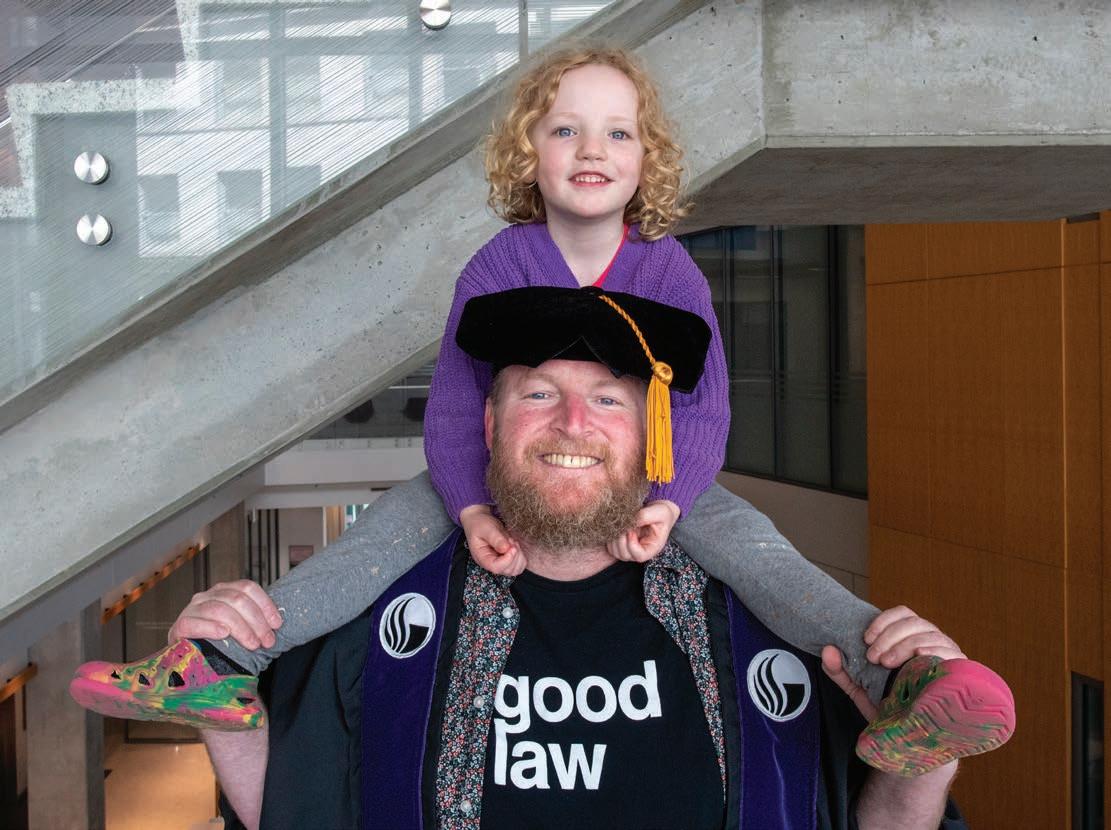 by Lauren Allred
by Lauren Allred
Wingate’s commitment
earned
the inaugural Alex Patafio Public Interest Leadership Award along with his classmate, Zoe Siepert (J.D.
as his proudest accomplishment during his law school years.
an Wingate (J.D. ’23) was sitting in a court hearing for a co-worker when he realized that the legal system needed more people who were equipped and eager to represent individuals who face discrimination.
In his seven years of active duty in the U.S. Army, Wingate witnessed his fellow service men and women encounter the criminal legal system and saw first-hand the devastating and dehumanizing effects of the Department of Defense Directive 1304.26, more commonly known as the “Don’t Ask, Don’t Tell” policy.
“I’ve never liked bullies, and the law should offer a level playing field for people to confront them,” he said.
A few years after he returned from the service to his hometown of Atlanta, he opened a small pub in the Kirkwood neighborhood that became a nexus for community service and social justice. When a co-worker, a young man of color, ran into a conflict with the legal system, he was represented by a public defender who was overworked, overwhelmed and overloaded.
It was the final push Wingate needed to apply to law school so that he could once again be of service in an area of critical need: public defense.
Wingate’s intention to be a public defender came from a desire to practice what he and others call “Good Law.” To our Georgia State Law community, Good
Law refers most simply to practicing law with a holistic, interconnected approach to those who need legal assistance. It is an impulse to use the law to help the whole person, recognizing how easy it can be for individuals to be disadvantaged by technicalities in the law, find costly legal representation that is out of reach, and for minor incidents to have cascading consequences.
Rather than sum it up himself, Wingate defers to the words of his late classmate, Alex Patafio (J.D. ’23), who wrote, “Lawyers have a moral obligation to serve regardless of their full-time positions; wherever and whenever able, lawyers should prioritize Good Law.”
One of the core principles of practicing Good Law is pro bono service, where an attorney provides legal representation without charging for their services. Wingate got involved with pro bono projects early in his tenure as a law student.
“The Pro Bono program saved me my 1L year. My cohort was almost completely virtual, and I had a really hard time connecting with classmates and the law. Through the Pro Bono program, I was able to connect with clients and see firsthand how transformative the law could be,” Wingate explained.
Wingate participated in the Alternative Spring Break program, lent his services to people seeking gender-affirming name changes, and he was among the cohort of students who responded to the Attorney
counts
General’s call to action to address the housing and eviction crisis in the U.S. in 2021.
“I was able to meet, listen to, and advocate for clients who needed just the little legal assistance I could offer,” he recalled “Those clients are the ones who made the law make sense. They taught me how important it was to listen to every client’s story, to see them and to truly acknowledge them.”
Wingate’s commitment to working in public interest earned him the inaugural Alex Patafio Public Interest Leadership Award along with his classmate, Zoe Siepert (J.D. ’23), and he counts it as his proudest accomplishment during his law school years.
“Alex was a tireless advocate for the overlooked and underserved. She spoke truth to power with a mighty voice and fierce style. Her dedication to service will live on in the countless people touched by her indomitable spirit.”
Wingate takes that spirit with him into the next steps of his career, beginning with a position as an assistant public defender in Dekalb County, Georgia this fall. He also intends to stay connected with the public interest programs at the College of Law, helping to build their influence.
“I’m so lucky to have had the opportunity to attend the COL. And I can’t wait to help it produce even more amazing #GoodLaw attorneys in the future.”
to working in public interest
him
’23), and he
it
 by Stacie Kershner (J.D. ’08)
by Stacie Kershner (J.D. ’08)
On July 26, 2023, Morgan Cronin (J.D./M.S.H.A. ’23) will be taking the Georgia Bar Exam. The date is special for many reasons; it marks one year since she donated part of her liver to her younger brother. Cronin’s brother Craig was diagnosed in 2019 with primary sclerosing cholangitis, an incurable chronic liver disease that ultimately leads to liver failure.
“My family knew he would need a liver transplant, we just didn’t know when,” Cronin said. In spring of 2022, they found out it was time, and Cronin was quickly evaluated as a living donor. She went to the University of Pittsburgh Medical Center for the surgery during the summer before her final year of law school. “My brother has a new lease on life,” she happily reported. “Now he is going to medical school!”
Last fall, when Cronin returned to Georgia State Law after her organ donation, she dove back into classes and resumed her leadership activities as the editor-in-chief of the Georgia State University Law Review
Her experiences made her classes even more personally relevant: “In Health Law: Quality and Access, we were talking about issues of informed consent for medical procedures. In Bioethics, we were talking about access to organ transplants.”
Cronin shared her experience in class and on a panel about the legal and ethical issues of organ donation alongside Assistant Professor of Law and Pediatrician Anjali Deshmukh, and Law Professor Emerita Sylvia Caley, a former nurse, who helped get organ donation designations on Georgia driver’s licenses.
“Morgan approaches health law with a maturity and compassion beyond her years,” said Deshmukh. “Her openness in sharing her experiences and ideas — delivered with a little bit of levity is truly remarkable.”
Cronin’s interest in health law is what
drew her to Georgia State Law. Before law school, she earned an undergraduate degree from the University of Georgia, with a major in risk management and minor in public health. She was intrigued by the business side of health care and began working at MagMutual, a medical professional liability insurer, as a claims analyst. She regularly worked closely with medical malpractice attorneys, inspiring her to consider law school.
Through the health law certificate and master of science in health administration, she became interested in the regulatory landscape of health care. “The certificate ensured a foundation in health law, and the dual degree provided an understanding of the business side of health care,” she said.
The health law certificate offered another advantage: “Through the health law certificate and serving on the Student Health Law Association (SHLA) board, I got to know a core group of students with similar interests,” explained Cronin.
A highlight of the health law program was participating in the Health Law Partnership (HeLP) Legal Services Clinic. “The clinic was a rewarding way to expand my horizons and help real clients,” said Cronin. “I also developed some of the soft skills important to law practice even though I plan to practice in a different area of health law such as how to have tough conversations with clients on sensitive topics.”
Assistant Clinical Professor Christina Scott (J.D. ’18) was not surprised to hear that Cronin became an organ donor: “Her compassion towards her clients combined with her immediate desire to gain a deep understanding of the legal issues made her a stellar clinic student and advocate.”
After joining Law Review as a secondyear law student, she used her note to explore the intricacies of the False Claims Act and a circuit split on objective falsity: “It was intriguing to me how two different
medical professionals, both competent doctors, could come to very different conclusions and recommend different treatments, and both could be right. I wanted to examine how that played out in the courts.”
Her paper, “How Deep is the Objective Falsity Circuit Split?” was awarded second place in the American University Washington College of Law’s Seventh Annual National Health Law Writing Competition.
“Morgan is a superstar. She’s had a fire in her since the moment she arrived at Georgia State Law,” said Professor Erin Fuse Brown. “I advised her Note, had her in class, saw her excel and lead right away. I tried to hire her as a research assistant, but she had just accepted the job of editor-in-chief of Law Review. To think that in the middle of all of this she flew up to Pittsburgh to donate her liver to her brother without missing a beat is mind-boggling. There’s absolutely nothing Morgan can’t do once she sets her mind to it.”
Cronin is looking forward to the next phase of her career. She will be a clerk for the Honorable Judge Timothy Batten of the United States District Court for the Northern District of Georgia, after which she will join Alston & Bird as an associate on their health care team.
“I have had health-law blinders on, but clerking offers a little exposure to a variety of areas of the law. Seeing litigation on the back end will give me insight on how to be a better lawyer for my future client on the front end in their transactions, potentially preventing similar problems.”
But first comes the bar exam. Cronin finds stress to be a motivator for her. After donating an organ last year, passing the bar exam doesn’t seem like a life-or-death matter now.
“I hope my story helps reduce fear and encourages others to consider donating,” said Cronin.

On December 7, Katie BenoValencia (J.D. ’24) and Angela Flores (J.D. ’24) were the lead advocates in a Merits hearing before an Atlanta immigration judge with a 96.9 percent denial rate. In February, they received the judge’s decision granting their client asylum on the basis of her race and identity as a member of the social group “Indigenous females in Guatemala.”
The students were coached by the clinic’s Associate Clinical Attorney Will Miller and Associate Clinical Attorney Emily Torstveit Ngara.
“This was a highly stressful situation losing meant an order of deportation back to Guatemala, where our client’s life would be in danger,” said Miller. “As a result of the students’ efforts, and of their skill and savvy at trial, our client is no longer in removal proceedings and soon will have her green card.”
The students devoted almost 300 hours of work to prepare for the trial after receiving the case in late August 2022.
“They started from close to zero, but got their arms around the law pretty quickly,” said Miller.
The students collected evidence, corresponded with fact witnesses in Guatemala and prepared written declarations for signature. They observed other asylum proceedings at the Atlanta Immigration Court with alumni Judge Pamela Peynado (J.D. ’14) and Joshua
McCall (J.D. ’21) and then practiced all aspects of their trial numerous times.
“The preparation helped me get through the nerves of going to trial,” Beno-Valencia said. “I really appreciated the support our professors offered us; they helped us develop skills and tools not only for this case but to use in our future careers. I felt proud of the work we did and proud of our client.”
At the Dec. 7 trial, Beno-Valencia led the direct exam of the expert witness for Guatemalan asylum seekers. Flores led the direct exam of the client as she shared her testimony.
“This case was truly one of the bestlawyered cases I have seen in my time in practice,” said Ngara. “The students rose to the occasion and ensured that the necessary information made it into the record during testimony, overcoming technical difficulties, language barriers and layers of trauma in the process. The client is incredibly resilient, courageous, hard-working and empathetic. The state of Georgia is better for her being in it, and I am thrilled that she will be able to stay here as long as she chooses.”
During her testimony, the client shared painful details of what happened to her in Guatemala, often through tears.
“Angela accomplished something many seasoned asylum attorneys often fail to do elicit testimony from a traumatized client consistent, down to the last detail, with the client’s previously submitted
written declaration,” said Miller.
Flores attributes the successful direct examination to the diligent preparation of the team, the guidance from professors and the client’s courage and resilience.
“For a client to tell a deeply personal story about the persecution they survived, they have to re-experience it. Understanding how difficult that is, caring deeply for your client, and maintaining hope is important for attorneys of clients who have survived trauma,” she said.
Both Flores and Beno-Valencia were drawn to Georgia State Law because of its Immigration Clinic and their desire to have a meaningful impact on people’s lives.
Before attending law school, BenoValencia worked as a paralegal at an immigration law firm and at Kids in Need of Defense (KIND). She plans to practice immigration law after graduation and says programs like the Immigration Clinic are important “because it offers an individual who may not be able to obtain representation otherwise a chance to have their day in court.”
Flores, who previously worked with children in foster care, hopes to become a child advocate attorney.
“My experience participating in the clinic exceeded all my expectations of what I could learn and accomplish in a semester,” Flores said. “It is an honor to directly represent those who have overcome seemingly insurmountable odds. It’s a reminder that all things are possible.”
An asylee who has been in limbo for more than five years is now eligible for lawful permanent residence and eventually citizenship, thanks to hard-working students in Georgia State Law’s Immigration Clinic.
Cass Brewer, professor of law, attended a legislation signing ceremony with Governor Brian Kemp. Governor Kemp signed the revised Georgia Nonprofit Corporation Code and Professor Brewer served as a member of the drafting committee.
Russell Covey, professor of law, serves as a co-chair of the American Bar Association’s Plea Bargaining Task Force. The group released a report in February 2023 highlighting 14 guiding principles for reforming the pleabargaining system.
Julian Hill, assistant professor of law, was a judge for the Social Justice Debates focused on worker cooperatives at Morehouse College.
Darcy Meals, deputy director of the Center for Access to Justice and director of Public Interest Programs, is a fellow of the American Bar Foundation and the co-chair of the Association of American Law Schools section on pro bono and access to justice.
Rose Rameau, visiting professor of law, was invited to speak at the Ghana Institute of Management & Public Administration (GIMPA) Law Conference on the 1992 Constitution of Ghana @ 30.
Lisa Bliss, director of the Health Law Partnership Legal Services Clinic, presented at the Medical Legal Partnership Symposium at Yale University, “Evaluating MLPs” Innovation and Current Research,” and at the Association of American Law Schools Conference on Clinical Legal Education, “Effective Practices for Cross-Jurisdictional Collaborations with Guests from Australia, Nigeria, Ukraine and the United Kingdom.”
Margaret Vath, director of Lawyering Foundations and senior lecturer, and Leila Lawlor, director of academic success and the LL.M. program, presented “Preparing Students for the NextGen Bar Exam: Collaborative Efforts of Legal Writing and Academic Support Educators in Developing and Implementing Scaffolded Lessons for Use throughout Law School Curriculum and Bar Prep Programs,” at the Association of American Law Schools.
Karen Johnston, deputy director, along with co-directors John Marshall and Ryan Rowberry of the Center for the Comparative Study of Metropolitan Growth, hosted the “Disaster Law & Policy Global Perspectives Symposium,” to celebrate the publication of the Cambridge University Press handbook Disaster Law & Policy, Risk, Recovery and Redevelopment The book was edited by Marshall, Rowberry and Professor Susan S. Kuo (Univ of South Carolina).
Kendall Kerew, associate clinical professor and director of the Externship Program co-authored a book called Externship Pedagogy & Practice
Allison Whelan, assistant professor of law, published an article in the Harvard Journal of Law & Gender called “Aggravating Inequalities: State Regulation of Abortion and Contraception.”
Erin Fuse Brown, Catherine C. Henson Professor of Law and director of the Center for Law, Health & Society, published an article in the New England Journal of Medicine titled “Corporate Investors in Primary Care Profits, Progress, and Pitfalls.”
Clark Cunningham, professor of law and W. Lee Burge Chair in Law & Ethics, was interviewed by media outlets including The New York Times, the Wall Street Journal, the Washington Post, USA Today, the Financial Times (London), CBS Evening News, Fox News, and CNN regarding the Georgia grand jury investigation into interference in the 2020 presidential election.
Anjali Deshmukh, assistant professor of law, co-authored a research letter for JAMA Health Forum titled “Timing of Confirmatory Trials for Drugs Granted Accelerated Approval Based on Surrogate Measures from 2012 to 2021.”
Anthony Kreis, assistant professor of law, has become a globally recognized expert in the law of democracy, providing commentary for the 2020 presidential election investigation in Georgia for several news outlets including The New York Times, Washington Post, CNN, ABC News, British Broadcast Corporation and the Australian Broadcast Corporation.
Caren Morrison, associate professor of law, shared her thoughts with Capital B Atlanta about “Cop City” bodycam footage.
Chris Timmons, adjunct professor of law, was quoted by WABE and appeared on CBS Mornings about jury selection in the YSL trial.
Jeffrey Vagle, assistant professor of law, wrote an editorial for Jurist called “Standing is as Standing Does: What the Mifepristone Rulings Mean for the U.S. Rule of Law.”
Megan Boyd, senior lecturer, received the 2023 George M. Sparks Faculty Award.
Stacie Kershner (J.D. ’08), deputy director of the Center for Law, Health & Society, is the recipient of the 2023 Steven J. Kaminshine award for excellence in service.
Leila Lawlor, director of academic success and the LL.M. program, received the “Best Paper Award” at the annual conference of the Western Academy of Legal Studies in Business. She also recently completed another master’s degree in applied linguistics. This is the third master’s degree Leila earned while teaching.
Paul Lombardo, Regents’ Professor, was honored as a Distinguished Professor of Law and Bioethics from the Sindh Institute of Medical Science in Karachi, Pakistan.
Patrick Parsons, associate director for Legal Technology & Innovation and executive director of the Legal Analytics & Innovation Initiative, is the recipient of the Emerging Leader Award from the American Association of Law Libraries (AALL).
Tanya Washington, professor of children’s constitutional rights, is a member of a consortium of law professors focused on the advancement of children’s rights. The joint venture is supported by a generous gift of more than $2 million from an anonymous donor. The work of the scholarly triumvirate will include a law school coursebook, law school courses, amicus briefs in state and federal cases, and invitation-only convenings centered on four research areas: education, climate, juvenile justice, and families and foster care.
Ted Afield, Mark and Evelyn Trammell Clinical Professor and director of the Philip C. Cook LowIncome Taxpayer Clinic, received an administrative appointment to associate dean of experiential education and director of clinical programs.
Courtney Anderson, associate professor of law, was appointed to associate dean for academic affairs.
Timothy Lytton, associate dean for research and faculty development and professor of law, was appointed to Regents’ Professor.
Corneill Stephens, director of Lawyering Advocacy, is now the L. Lynn Hogue Professor of Law.
Lauren Sudeall, director of the Center for Access to Justice was appointed as an associate reporter for the American Law Institute Project on Principles of Law, HighVolume Civil Adjudication.
Leslie Wolf, professor of law, was reappointed as a Distinguished University Professor.
Kristina Niedringhaus, associate dean for Library, Information Services, Legal Technology, and Innovation and faculty director of the Legal Analytics & Innovation Initiative (LAII), has been recognized as one of 16 Influential Women in Legal Technology for 2023.

The International Legal Technology Association (ILTA) made the announcement in March 2023 and Niedringhaus is the first academic to receive this prestigious honor.
“I am honored and humbled to be recognized with such a stellar group of women advancing legal tech in a myriad of ways,” she said.
Niedringhaus has always been interested in technology, and examining
ethical issues related to legal technology. She regularly writes and speaks on topics such as legal research, legal technology, teaching methods, and law library management.
She currently serves on the board of directors for the Center for ComputerAssisted Legal Instruction (CALI) and just completed a four-year term as president of the board. She is also a member of the executive board of the American Association of Law Libraries (AALL) and a member of the executive committee of the American Association of Law Schools (AALS) section on Law, Technology and Legal Education.
Niedringhaus says teaching legal tech classes and working with the LAII over the past few years has provided a stimulating environment to consider program design and curriculum. “I’m grateful to work alongside creative colleagues with a passion for legal
technology and preparing students for the future.”
Niedringhaus has worked for the College of Law for 10 years. She said she is inspired and proud of the work being done to prepare students to become technology leaders in their firms or the legal technology innovation space.
Niedringhaus is grateful for her ILTA recognition. “I’m looking forward to growing the LAII program for our students and, in the future, providing outreach to the legal community through attorney education programs.”
Each March, in honor of International Women’s History Month, ILTA recognizes women who have made significant contributions to the legal technology industry. ILTA is an organization that serves as a professional resource for international legal technology professionals and their organizations.
Jack F. Williams, professor of law at the College of Law and the Middle East Studies Center was awarded the 2022 President’s Lifetime Achievement Award by President Joseph R. Biden. Williams was selected for his exceptional service and pro bono work benefiting various communities across the United States.
The award is the highest honor in the country for volunteer services. It recognizes individuals who have contributed more than 4,000 volunteer hours toward the betterment of society.
Williams received the award for his tireless efforts ranging from 2007 to present in supporting the Coast Guard Auxiliary in life-saving and boating safety
campaigns, promoting the mission of HBCUs, and working with the Georgia Department of Human Services to provide support to foster children, aging populations, and the homeless communities facing food insecurity.
“I feel honored and humbled at the same time. Any honor like this one from The White House is a greater reflection of those that have supported, nurtured, and guided me than it is of me personally,” said Williams.
Williams continues to contribute his skills in other areas while undertaking his pro bono work. Over the years, he has also served as an instructor for attorneys in the Office of Chief Counsel for the Internal Revenue Service, as part of the New York University School of Law’s Continuing Professional Education program.
Despite his impressive achievements, Williams attributes his success to incredible forces in his life.
“My faith, my family, my friends, my students, and this wonderful institution are the bedrock for my service and giving.”
Williams is also an adjunct professor at St. John’s University School of Law Bankruptcy LL.M. program and at Emory University School of Law, a resident scholar at the Association of Insolvency & Restructuring Advisors, and a tribal council senior advisor at the Choctaw Nation of Oklahoma.
In 2022, Williams was appointed to the American College of Bankruptcy Diversity, Equity, and Inclusion Committee. For his contributions to Historically Black Colleges and Universities (HBCUs) and Environmental, Social and Governance/DEI initiatives, he received the prestigious American Association of Law Schools (AALS) Inaugural Faculty Award – Pro Bono.
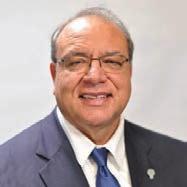
 by Jaya Franklin
by Jaya Franklin
Aassociate professor of law Courtney Anderson is taking a new step in her academic career. She has been appointed associate dean for academic affairs, effective March 1, 2023.
In this position, the associate dean will coordinate the academic affairs of the law school including the development and management of curricular matters in compliance with the American Bar Association and the Association of American Law Schools accreditation standards, along with ensuring compliance for policies administered by the University System of Georgia and Georgia State University.
Among other things, the associate dean is responsible for identifying, coordinating, and overseeing the program of instruction for law students by part-time and adjunct instructors.
This role is also responsible for supervising the Registrar’s office. Additionally, the associate dean of academic affairs selects and supervises graduate assistants assigned to the associate dean’s office and part-time adjunct instructors.
“I have been so inspired by Georgia State Law students over the years. This opportunity to collaborate with my brilliant and dedicated colleagues as we build and grow academic opportunities to support our students through their educational journey is truly an honor,” said Professor Anderson.
She joined the College of Law in 2012 as an assistant professor of law. Her position was created as part of the Second Century Initiative (2CI), which supports interdisciplinary research and collaboration across campus.
Professor Anderson is an affiliate faculty member for the Center for Access to Justice and the Center for Law, Health, and Society. She also developed a course in law, health, and equity.
“Professor Anderson will be a great addition to the College of Law’s leadership team. She brings a variety of experience in leadership, collaboration, and team building,” said College of Law Dean LaVonda Reed.
“Professor Anderson is a visionary who will represent the college well and work to strengthen and cultivate new relationships between the law school and the community,” she added.
Anderson is also a part of the Greenwall Foundation project, along with her colleagues Regents’ Professor Paul Lombardo
and Distinguished University Professor Leslie Wolf. The law faculty members received a grant in 2019 from the Greenwall Foundation and formed a partnership with the Georgia State Honors College to develop an undergraduate bioethics course.
Professor Anderson is also the 2022 recipient of the College of Law’s Patricia T. Morgan Award for Outstanding Scholarship. Her scholarship focuses on the intersection of health, housing, and disparities rooted in systemic racism.

She will succeed Associate Dean Cass Brewer who has served in the role since 2021. Associate Dean Brewer will return to regular full-time faculty duties teaching and researching in the areas of tax law and policy.
“I am grateful for Dean Reed, the faculty, and the students for entrusting me with the duties of the associate dean for academic affairs. Furthermore, I’m grateful that my colleague, Professor Courtney Anderson, whom I deeply admire and respect, will be assuming the duties of associate dean for academic affairs. I know that she will be exceptional and will have the full support of the faculty and the students.”
“We appreciate Associate Dean Brewer for his time, dedication, and service while serving in this critical role. Among other successes, he effectively brought courses back to the building after the disruption of the pandemic and revamped the fall academic calendar to allow for more reading days between the end of classes and the start of final exams,” said Dean Reed.
“I have been so inspired by Georgia State Law students over the years. This opportunity to collaborate with my brilliant and dedicated colleagues as we build and grow academic opportunities... is truly an honor.”
When did you realize that you wanted to pursue a legal career?
I wanted to pursue a legal career as far back as I can remember — it offered an entrepreneurial career path where I could focus on problem solving. The decision to pursue accounting was always with the mindset that I would end up practicing law — I was an undergraduate student at Auburn University in 2008 — times were tough, outlook was scary — the accounting program offered a skillset that I thought would translate well. Thankfully so, my accounting background has been beneficial in practice.
Are you involved in any pro bono or public service work?
I’ve been fortunate to practice law in two cities (Atlanta and Chicago) which have extremely well-developed pro bono infrastructures and it’s been a joy to help in both over the years. I’ve recently assisted a social enterprise in Chicago which focuses its efforts on the empowerment of women. It’s always a cool experience to find ways to use your skillset on pro bono initiatives.
How did Georgia State Law help shape your career path?
by LaurenGeorgia State was an incredible experience — I don’t think the diversity of life experience among the student body can be overstated. The school’s part-time students always brought a fresh perspective to every class. Professor Ellen Taylor’s Corporations class jumps to mind and undoubtedly set me on my path to a career in corporate law. I also served as a Graduate Research Assistant for Professor Cass Brewer — someone who had great success in private practice and has always made the time to discuss the ups and downs of it all.
Were you involved with any student organizations at the College of Law?
I was a member of the Law Review. It was a great experience in many ways. The emphasis on the “little things” helped prepare me for private practice and reshaped my approach to writing. From a social perspective, I made some of my closest friends —people that, despite me being in Chicago, I still keep in close touch with and look to for feedback in all aspects of life ten years later.
What is the most rewarding aspect of your current role at Kirkland & Ellis?
Kirkland & Ellis offers the opportunity to work on sophisticated matters and develop relationships with some of the sharpest attorneys around the world. The most rewarding aspect is when we’re presented with a novel issue, and we work collaboratively to provide the best possible guidance for our clients.
What advice would you give one of our current students who wanted to follow in your footsteps?
The easy answer is that you will need to work incredibly hard and stay resilient — any career in private practice will have times of adversity and you need to be ready to roll with the punches. More importantly, I would say to focus on your inner circle — whether it’s your parents, your significant other, your friends, your kids, or whoever, no one does it alone and they are the ones that will provide the spark to get through the tough days. Lastly, keep an open mind and, when the right opportunity presents itself, don’t be afraid to take a chance.
Cot Eversole (J.D. ’15) is a corporate partner in the Chicago office of Kirkland & Ellis LLP. Eversole represents issuers and sponsors in connection with all types of public and private capital markets transactions.

COT EVERSOLE (J.D. ’15)
From law school to partner in less than 10 years
Allred
When the right opportunity presents itself, don’t be afraid to take a chance.
1985
1997
2012
John B. Austin retired from the practice of law at the end of 2022, after 37 years of litigating personal injury cases. Now he is concentrating on his mediation practice at Miles Mediation and Arbitration.
1991
2005
Alyson Markovich has been promoted to partner at Morris, Manning & Martin, LLP.

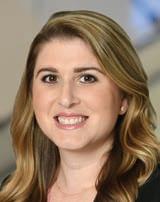

2016
Lynne Mapes-Riordan (J.D. ‘89) a former partner at Barack Ferrazzano
Kirschbaum & Nagelberg
LLP passed away on Monday, February 20, 2023. Our thoughts and prayers go out to her family, friends and colleagues.
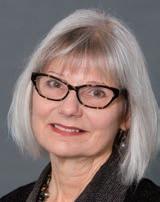

Robyn Ice (formerly Sosebee), senior professor of practice and the director of the General Legal Studies and Business & Leadership programs at Tulane University’s School of Professional Advancement (SoPA) was named the 2023 recipient of the Emily Vokes Faculty Service Award.
1992
Linley Jones and Angela Forstie of The Linley Jones Firm, PC created a scholarship at Georgia State University College of Law for a student who is an aspiring woman trial lawyer.
2009
Pierce Hand has been appointed to the Atlanta Bar Association’s Board of Directors as an At-Large member for 2023–2024.
2018
Antonio Molina was promoted to junior partner at the community-focused firm Nguyen & Pham LLC.

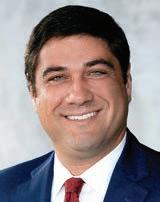
2019
Dan Johnson is now the deputy executive director of The Extension in Marietta, Georgia.
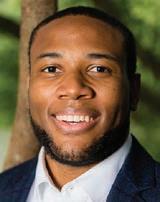
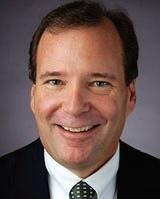
Frank Slover (J.D. ’85), former member of the Georgia State Law Alumni Council passed away on April 17, 2023. Slover practiced commercial real estate and business law for 30 years. He was also a big supporter of Georgia State Law from attending annual functions to supporting the construction of our new law school building and endowing his very own scholarship.
Share your news: law.gsu.edu/ class-actions.

 by Caroline Silva, The Atlanta Journal-Constitution
by Caroline Silva, The Atlanta Journal-Constitution
Ana Maria Martinez (J.D. ’09) wants to make her community and little girls proud.
As the first and only Latina trial judge in Georgia, she thinks representation matters when it comes to making sure justice is served. The lack of it is alarming, she says.
“Justice is a function of perception, and when defendants go into a courtroom they want to know that whoever is listening to them understands where they’re coming from,” Martinez recently told The Atlanta Journal-Constitution
Martinez was appointed by Gov. Brian Kemp in January 2022 to replace Dax López and serve on the DeKalb County State Court. It was not a role she ever expected.
Born in Colombia, Martinez moved to Duluth in 1995 at the age of 12. As a naturally social child, the move was a striking change. She said she came home from school crying every day because she struggled to make friends due to the language barrier. Within three months, Martinez said she was able to speak much more fluently. Atlanta is now a second home, even though she visits Colombia almost every year.
Though Martinez said she never had plans to pursue law, she credits her interest to her Colombian grandfather, Julio Florez, who frequently would take her to see his collection of books in his in-home law library.
Years later, after graduating with a marketing degree from the University of Georgia in 2004 and working for Progressive Insurance, a friend asked her to study with him for the LSAT. She had no plans to take the test herself. But when he said he wasn’t ready, she went ahead and took it. Georgia State College of Law was the only law school she applied to and she got in.
Martinez found herself working at a civil defense firm after graduating in 2009. Then in 2013, she joined López’s staff. At the time, he was the only Latino State Court judge in Georgia.
Martinez felt she was helping break barriers for women and Latinos in law, but she wanted to do more. In 2015, she founded the Georgia Latino Law Foundation. The goal was to help support Latino law students.
In Georgia, Martinez suspects that Latinos make up only about 1 – 2% of the Bar Association. There is no way of getting an exact number, she said, because the Georgia Bar stopped asking people to self-identify in the 1970s. She wants to change that, stating: “You measure what you care about.”
Working as a staff attorney and running the foundation allowed Martinez more time to spend with her daughters, who are 6 and 11 years old. Women’s History Month is a reminder
to show them that being a woman can be much more than just motherhood.
“I want them to see that they can set their mind to something and accomplish it. And that they can be more than just a mom or a woman, they can be a professional and make a difference in the world,” she said.
A few years into working for López, he pulled her aside one day and said two words: “It’s you.” He wanted Martinez to take over and she knew he was right. If she was going to keep telling Latino law students to dream big and her own daughters to break barriers, she was going to have to do those two things herself.
State court judges hear misdemeanor criminal cases and traffic offenses, issue search and arrest warrants, hold preliminary hearings in criminal cases and try civil matters that are not exclusive to superiors courts. In Georgia, there are 73 state courts, 133 judges and 61 senior judges.
Through her contributions, Martinez has served as a role model to more than just her children. Judicial Assistant Gricelda Benitez-Reyes was made part of Martinez’s team because of her fluency in Spanish. The El Salvador native looks up to Martinez.
“When I showed you that picture of me when I was a 3-yearold, I said, ‘(Martinez) has become this child’s role model and hero.’ That is really what she is,” Benitez-Reyes said.
With a little more than a year on the bench, Martinez said she is most proud of running the only Spanish-speaking DUI court in the state. For her, it’s an opportunity to change people’s lives. The idea is not just to send people to jail, but to give them an opportunity to rehabilitate, sober up and be more involved in their communities.
But while she knows she has provided the resources for other Latinos in the state, she said there is a lack of representation. She thinks having ethnic and gender diversity in law fosters an environment where defendants feel heard.
“It serves to have women in (judge) positions. It helps to have Latinos in those positions,” she said. “Diversity creates a lot of understanding across the board and helps people feel like justice is taking place.”
Benitez-Reyes is just one of many who acknowledge the benefit of having a Latina on the bench. Of having someone who looks like her.
“Back in my country, if I had grown up over there, I probably wouldn’t have had the option to even go to school,” she said. “The fact that (Martinez is) a Latina, the fact that she is a judge, she gives hope for Hispanic women.”
“When defendants go into a courtroom they want to know that whoever is listening to them understands where they’re coming from.”
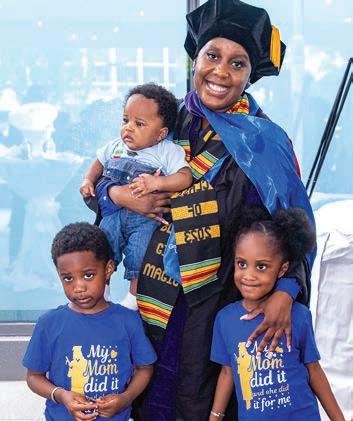

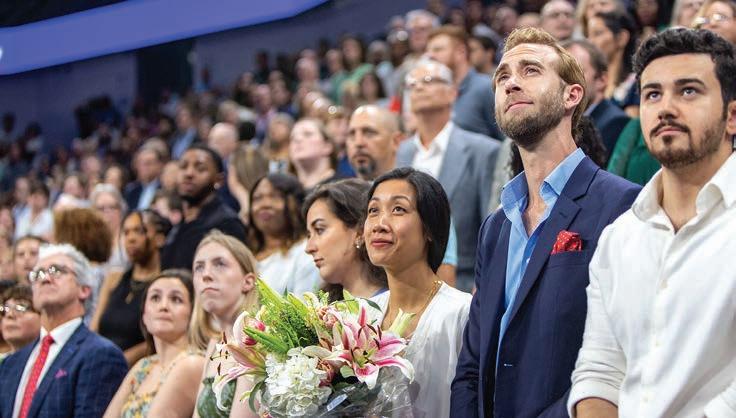
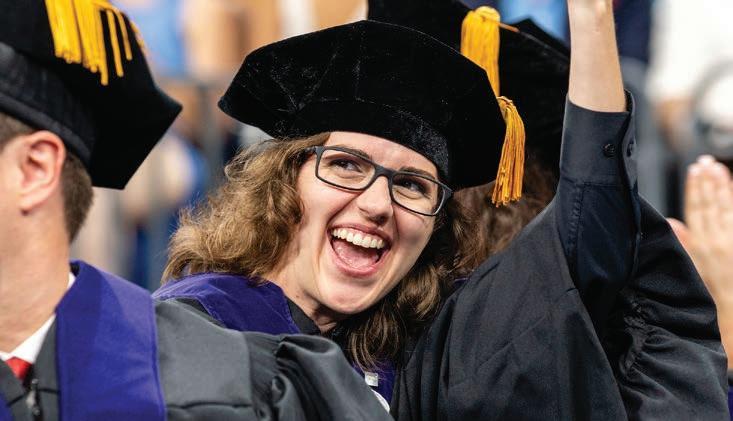


Ramona Condell (J.D. ’13) is a child attorney III in the Fulton County Office of the Child Attorney, where she acts as lead counsel, providing advocacy for the rights of children alleged to be abused or neglected.
No. 1

Health Law
2023 – 2024 U.S. News & World Report
No. 12
Part-Time Program
2023 – 2024 U.S. News & World Report
No. 19
Clinical Training
2023 – 2024 U.S. News & World Report
Kimberlynn B. Davis (J.D. ’13) is a partner at Kilpatrick Townsend & Stockton LLP. Davis is an attorney in the firm’s patent practice group, where she utilizes her Ph.D. in synthetic organic chemistry to protect innovations with massive real-world impact.
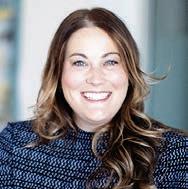


Megan Boyd, senior lecturer, was named the recipient of the 2023 Legal Research and Communication Scholarship Grant.
Zoe Siepert (J.D. ’23) is a 2023 Equal Justice Works Fellow sponsored by Greenberg Traurig, LLP and UPS.
Kathleen Hoyos (J.D. ’16) is a native Spanish speaker who is fluent in English, Italian, and French. Hoyos is a partner at the Antonini and Cohen Immigration Law Group. She began her career as a receptionist at the firm in 2010 and advanced to become the youngest partner in the firm’s history in 2021.

Robert Weber, associate professor of law, is the recipient of the U.S Fulbright Distinguished Scholar Award in Law at the University of Trento for Spring 2024.
Macy McFall (J.D. ’20) spent eight years working in Georgia politics, most recently as chief of staff for Lt. Gov. Geoff Duncan, and now uses her extensive government experience to navigate legislative, regulatory and administrative issues for the Robbins Firm.
Bloomberg Law named the College of Law’s Legal Analytics & Innovation Initiative one of 10 finalists in its inaugural Law School Innovation Program. The initiative equips students with competitive skills needed by law firms across the country, learning to use legal technology and analytics to advance the practice of law efficiently, ethically, and analytically.
P.O. Box 4037
Atlanta, GA 30302-4037

“Georgia State College of Law is leveling the playing field for many students who have lived a life of income inequality. The College of Law needs and deserves to be supported by its alumni because we are educating students who might otherwise not have the opportunity to earn a law degree. We are changing lives and communities.”
— Catherine C. Henson (J.D. ’89) https://law.gsu.edu/donate